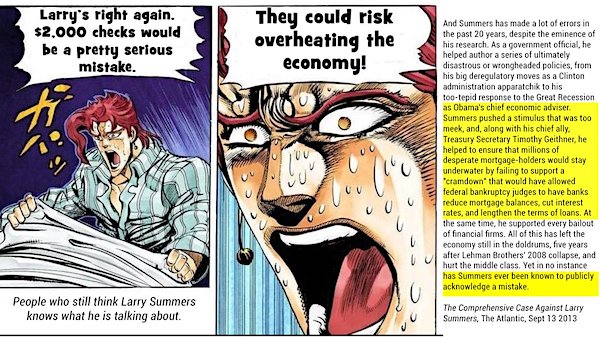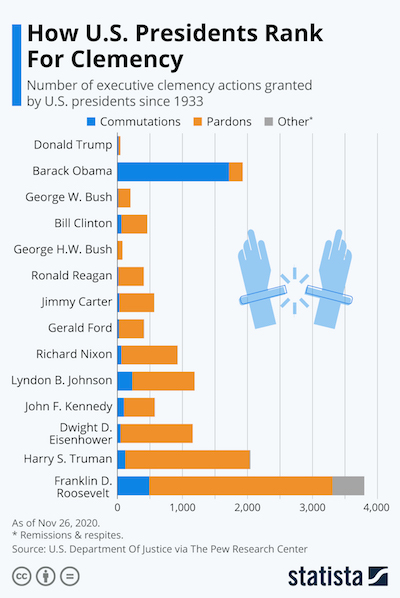
Juan Gris Man in the café 1912

“Be kind, for everyone you meet is fighting a hard battle.”
– Plato



Why is everything white Mohammed Ali

But they still don’t know.
• COVID19 Immunity Lasts For At Least 8 Months – Australian Researchers (RT)
People who build immunity against the coronavirus virus enjoy long-term protection from the illness, researchers in Australia have concluded, suggesting that vaccines could be effective for long periods of time. Melbourne’s Monash University announced that a team of researchers found that antibodies guard against reinfection for at least eight months. Their paper, published in the journal Science Immunology, is the “strongest evidence” yet that coronavirus jabs could be a workable solution to the health crisis, the university said. Previous studies suggested that antibodies to Covid-19 begin disappearing within several weeks or months. However, the new Australian research shows that specific cells within the immune system, called memory B cells, “remember” infection by the virus, and trigger a protective immune response by producing antibodies if re-exposure occurs.
The study examined 25 Covid-19 patients, taking 36 blood samples from them, starting four days after infection. The last samples were taken 242 days post-infection. Researchers saw that antibodies against the virus started to wane after 20 days following infection, but found that memory B cells specific to the Covid-19 virus remained stable for at least eight months. The results are good news for the efficacy of vaccines, and also help explain why there have been so few examples of people being reinfected by the virus, said Associate Professor Menno van Zelm, from the Monash University Department of Immunology and Pathology. This has been a black cloud hanging over the potential protection that could be provided by any COVID-19 vaccine and gives real hope that, once a vaccine or vaccines are developed, they will provide long-term protection.
Although there is a wide range of coronavirus vaccines that have shown to be effective at building immunity against the virus, it’s still unclear how long the protection lasts. However, vaccines will also have to keep up with mutations of the virus. BioNTech CEO Ugur Sahin said earlier this week that the German company would soon have a jab to counter a new strain of Covid-19 that appeared in the UK, but expressed confidence that the current vaccine developed with US firm Pfizer will still be effective for the time being. Russia’s homegrown Sputnik V vaccine is also effective against the new strain of the coronavirus, according to Kirill Dmitriev, CEO of The Russian Direct Investment Fund (RDIF), which bankrolled the jab’s development.

Fauci sells vaccines. It’s not difficult.
• Fauci Admits To Lying About Herd Immunity To Get Support For Vaccine (RT)
Dr. Anthony Fauci, the epidemiologist revered almost religiously as a hero by mainstream media outlets and Democrat politicians, has admitted that he lied to Americans to manipulate their acceptance of a new Covid-19 vaccine. The intentional deception involved estimates for what percentage of the population will need to be immunized to achieve herd immunity against Covid-19 and enable a return to normalcy. Earlier this year, Fauci said 60-70 percent – a typical range for such a virus – but he moved the goalposts to 70-75 percent in television interviews about a month ago. Last week, he told CNBC that the magic number would be around “75, 80, 85 percent.” When pressed on the moving target in a New York Times interview, Fauci said he purposely revised his estimates gradually.
The newspaper, which posted the article on Thursday, said Fauci changed his answers partly based on “science” and partly on his hunch “that the country is finally ready to hear what he really thinks.” “When polls said only about half of all Americans would take a vaccine, I was saying herd immunity would take 70 to 75 percent,” Fauci said. Then, when newer surveys said 60 percent or more would take it, I thought, ‘I can nudge this up a bit,’ so I went to 80, 85. Fauci added that he doesn’t know the real number but believes the range is 70-90 percent. He said it may take nearly 90 percent, but he won’t give that number because Americans might be discouraged, knowing that voluntary acceptance won’t be high enough to reach that goal.
The article was published on Fauci’s 80th birthday, which was celebrated in the nation’s capital as “Dr. Anthony Fauci Day” after being proclaimed as such by Washington’s Democrat mayor, Muriel Bowser. CNN and other media outlets covered the occasion glowingly, including Fauci being surprised with a “serenade” by emergency medical workers as he left his office at the National Institutes of Health on Wednesday. A CNN video of the serenade included an audio clip of President-elect Joe Biden and his wife, Jill Biden, singing the birthday song. But the doctor’s changing story on herd immunity is only the latest in a series of Covid-19 flip-flops, including 180-degree shifts on such core issues as whether members of the general public should wear masks and whether children should be sent back to school.
Just as his tone on herd immunity changed, his view on prospects for a return to normalcy shifted dramatically. A few days before the November 3 presidential election, he echoed Biden’s gloomy Covid-19 outlook and implied that the Democrat challenger would deal with the crisis more seriously than would President Donald Trump. After the election, he turned far more optimistic.

“To protect fertility, some men may want to consider freezing their sperm prior to vaccination.”
• Study Investigates Effects Of COVID19 Vaccine On Male Fertility (L10)
The University of Miami is investigating the possible effects of the coronavirus vaccine on male fertility. Lead researchers Dr. Ranjith Ramasamy, a reproductive urologist with U Health, initiated an earlier study which found the virus was present in the testicles for up to six months following infection. That spurred his team to question the virus’ effect on sperm and reproduction. His team is now looking at the potential impact of the vaccine as well. “We’re evaluating the sperm parameters and quality before the vaccine and after the vaccine. From the biology of the COVID vaccine we believe it shouldn’t affect fertility but we want to do the study to make sure that man who want to have kids in the future to assure them it’s safe to go ahead and get the vaccine,” Ramasamy said. Study participants must have a fertility evaluation before receiving the vaccine. To protect fertility, some men may want to consider freezing their sperm prior to vaccination.

Paralysis.
• Trump Told Congress To Give Americans More Money, Gets Bill With Less (Fox)
House Speaker Nancy Pelosi on Thursday said a bipartisan coronavirus relief and omnibus bill has been enrolled and is on its way to President Trump for his signature. “We urge him to sign this bill into law to give immediate relief to hardworking families,” Pelosi, D-Calif., tweeted. The enrollment comes after House Republicans rejected the president’s demand for $2,000 checks for most Americans. The rare Christmas Eve session of the House lasted just minutes, with help for millions of Americans awaiting Trump’s signature on a smaller COVID relief and government funding bill. Trump’s refusal of the $900 billion package, which is linked to a $1.4 trillion government funding bill, could spark a federal shutdown at midnight Monday.
His push to increase direct payments for most Americans from $600 to $2,000 for individuals and $4,000 for couples has gotten support from Democrats but splits the GOP. The Senate cleared the relief package on Monday by a 92-6 vote after the House approved it 359-53. Those vote totals would be enough to override a veto should Trump decide to take that step. Senate Majority Leader Mitch McConnell, R-Ky., and House Minority Leader Kevin McCarthy, R-Calif., helped negotiate the year-end deal, a prized bipartisan compromise that won sweeping approval in the House and Senate after the White House assured GOP leaders that Trump supported it.
Treasury Secretary Steven Mnuchin boasted that the $600 checks all sides had agreed to for Americans would in the mail in a week. Democrats will recall House lawmakers to Washington for a vote Monday on Trump’s proposal, with a roll call that would put all members on record as supporting or rejecting the $2,000 checks. They are also considering a Monday vote on a stop-gap measure to at least avert a federal shutdown, keeping the government running until President-elect Joe Biden is inaugurated next month. Even if the House is able to approve Trump’s $2,000 checks on Monday, that measure would likely die in the GOP-controlled Senate, which is due back in session on Tuesday.

Larry doesn’t need $2,000, thank you very much.
• Larry Summers: $2,000 Checks Could Overheat Economy, Even $600 Is Too Much (RT)
Larry Summers, a lead player in Democrat financial policies since the 1990s, triggered left-wing outrage by suggesting that sending Americans $2,000 stimulus checks amid the Covid-19 pandemic could cause the economy to overheat. “I’m not even sure I’m so enthusiastic about the $600 checks, and I think taking them to $2,000 would actually be a pretty serious mistake that would risk a temporary overheat,” Summers said Thursday in a Bloomberg TV interview. The former Harvard University president added that he would like to see more money allocated to bail out financially troubled local governments, but promoting consumer spending shouldn’t be a priority.
Summers made his comments as some lawmakers on both sides of the aisle worked to increase payouts to consumers to $2,000, rather than the $600 called for in the latest Covid-19 relief legislation. President Donald Trump on Tuesday night called the current bill a “disgrace” and said stimulus checks should be $2,000. Conservative Republican Senator Josh Hawley and far-left Democrat Senator Bernie Sanders are among the proponents of larger payouts to Americans. “I have to say that when you see the two extremes agreeing, you can almost be certain that something crazy is in the air,” Summers said. “And so when I see a coalition of Josh Hawley, Bernie Sanders and Donald Trump getting behind an idea, I think that’s time to run for cover.”
Summers was a World Bank economist before joining President Bill Clinton’s administration in 1993. He was named Clinton’s Treasury secretary in 1999, and he was director of the National Economic Council under President Barack Obama. “Careful everyone,” a self-described trade unionist tweeted. “This Clinton administration alumnus is worried that the inflation god is going to strike us down all of a sudden. Funny how austerity is firmly back on the Dem agenda immediately when one of them gets into office.”


Trump gets criticized because he’s Trump.
• Trump Granted Clemency Less Than Every President In Modern History Bar One (ZH)
Well this is going to break the mainstream media narrative… As Trump has pardoned some relatively high profile individuals such as Roger Stone, General Mike Flynn, and Paul Manafort, the liberalati has got its gender-neutral panties in a bundle over these “digusting”, “corrupt”, “cronyism” actions. It turns out however that, even including the recent surge, PewResearch reports that Trump has used his clemency power less often than any president in modern history (apart from Bush Senior), according to data from the U.S. Department of Justice. President Trump has granted clemency or pardoned 98 people in the last four years (76 pardons and 22 commutations). Obama, by comparison, granted clemency 1,927 times during his eight-year tenure, including 212 pardons and 1,715 commutations.
In terms of total executive clemency actions, Obama granted the most since Harry S. Truman The only modern president who granted clemency less frequently than Trump is George H.W. Bush, who granted 77 pardons and commutations in his single term. As PewResearch writes, clemency refers to multiple forms of presidential mercy. The two most common forms are pardons, which forgive past crimes and restore civil rights, and commutations, which completely or partially reduce sentences for those in prison or on community supervision. Two less-common forms are remissions, which reduce financial penalties associated with convictions, and respites, which are temporary reprieves that are usually granted to inmates for medical reasons.
The Justice Department’s statistics, it’s important to note, do not count clemency granted through proclamation or executive order, such as the actions taken by Presidents Gerald Ford and Jimmy Carter to forgive thousands of Vietnam-era draft dodgers. The DOJ numbers also count some clemency recipients twice – for example, in cases where someone received both a pardon and a commutation. While rare so far, Trump’s use of presidential clemency has caused controversy because of the nature of his pardons and commutations. Many of Trump’s clemency recipients have had a “personal or political connection to the president,” according to a July analysis by the Lawfare blog, and he has often circumvented the formal process through which clemency requests are typically considered.
But Trump is far from the only president who has faced scrutiny over his use of clemency. Obama’s frequent use of commutations, particularly for prisoners convicted of drug-related crimes, prompted criticism from Republicans, who said it benefited “an entire class of offenders” and infringed on the “lawmaking authority” of the legislative branch. And President Bill Clinton drew bipartisan condemnation for pardoning a fugitive commodities trader, Marc Rich, on his last day in office in 2001.


“..with the rate rising significantly in the sectors of food service (41.7%) and retail commerce (34%).”
• One In Four Greek Companies Say They May Have Shut Down For Good (K.)
About one in four enterprises (23%) is contemplating the possibility of not reopening after the coronavirus restrictions are lifted, with the rate rising significantly in the sectors of food service (41.7%) and retail commerce (34%). This is according to a survey by Opinion Poll for the Athens Professional Chamber (EEA) on December 14-18 on a sample of 1,002 chamber members. Even if they do not decide to shut down for good, a large section of enterprises say they will resort to layoffs: Almost a quarter of companies (24%) say this is a likely or very likely prospect, rising to 49.5% of enterprises in food service. In commerce, the sector that accounts for the highest share of employment in Greece, the rate comes to 22.7%.
The survey has found that the rate of intended layoffs is much higher among enterprises employing more than five people. Therefore 39.8% of companies with six to 10 workers intend to lay off staff, with the rate rising to 41.6% among those with 11-20 people and coming to 40.4% among enterprises with over 20 employees. If these intentions turn into action after the lockdown, they will send unemployment soaring. They stem from the high degree of pessimism among businesses, especially after the start of the second lockdown. One in four companies believe the economic crisis due to the pandemic will last more than two years, and another 27% think it will take a couple of years before normality returns.
Some 34% of corporations expect the crisis to last another year and only 11% are more optimistic, saying the crisis will be over in some six months. “According to our own estimates, one in three enterprises may have opened for the last time and never reopen,” Giorgos Kavvathas, president of the Hellenic Confederation of Professionals, Craftsmen and Merchants (GSEVEE), told Kathimerini. He added that the food service sector he also heads mostly considers that next year will be lost too, as unlike in the financial crisis of the 2010s, tourism will not come to the rescue.

Twitter won’t silence WSJ.
• How Hunter Biden Allegedly Traded On Family Name, Influence (ZH)
Just days after outgoing AG William Barr said there is “no need” to appoint a special counsel to investigate Hunter Biden despite revelations about a federal criminal investigation into Biden’s business conduct, we’re seeing the latest “scoop” about the younger Biden’s alleged misdeeds. In a lengthy investigative report, the WSJ has reportedly confirmed that the younger Biden traded on his purported influence and family ties during his business dealings in Ukraine and China (along with his conduct at home in his personal life, where he has seemingly careened from one disaster to the next) to enrich himself – and, importantly, his family as well. Importantly, in the story, WSJ explicitly notes that “none of the Journal’s reporting found that Joe Biden was involved in his son’s activities, which mostly took place around the time Obama’s second term was wrapping up.”
Our initial reaction: Of course it wouldn’t. But that doesn’t matter so much right now: What this shows is that the federal agents leading the “criminal tax probe” into the younger Biden are looking into how influence peddling and the Biden family name played into this, which could be very, very bad for Hunter’s father, and the Democrats. But the fact that WSJ is reporting and seemingly confirming that the younger Biden benefited ‘because of his last name and connections’ still has significance. Even though it shares an owner with Fox News, WSJ, with its closet full of Pulitzers, is still “respected” by the mainstream press.
Through reportedly talking with people familiar with Biden’s business dealings, WSJ managed to confirm various that the younger Biden received a discounted stake in a Chinese PE firm that was at the center of the NY Post’s reporting, along with consulting arrangements with a Romanian property magnate which “overall allowed him to maintain a globe-trotting lifestyle, according to interviews, documents and communications reviewed by The Wall Street Journal.” It even confirmed that Biden receiving a 2.8-carat diamond from a Chinese energy tycoon that has reportedly found its way to the center of the federal investigation into the president’s sons actions. Most of the details were clearly leaked to WSJ by Senate Republicans. But the takeaway here is pretty clear: even if the information is being used for political purposes, the investigation into Biden holds water. After all, federal investigations aren’t opened up for nothing.
By now, as Trump continues with his wave of pardons (he has of course pardoned far fewer people than his predecessor, even adjusted for his shorter time in the saddle), the GOP is ensuring that the investigation into Hunter Biden will be as fraught with leaks and bombshells and “scoops” as any other high profile investigation, including – most obviously – the Mueller probe. Social media could block out the NY Post, but they couldn’t block out WSJ. Though the story wasn’t widely covered, now that WSJ has “moved” on it, how much longer can its rivals – even WaPo and NYT – keep this from becoming an “essential” story after inauguration day. Otherwise, they will lose what little credibility they have left, as critics challenge the press to step up and hold Biden “accountable” like they did Trump.
There also might be an element of payback at play here, as WSJ owner Rupert Murdoch seeks to get back in Trump’s good graces after the president sicced his legions of loyal followers on Fox News, threatening its fat profit margins. Either way, one thing is clear: Leaks like this aren’t going to stop.

“..tate officials are likely to use the prospect as leverage in negotiations to force the search giant to accept a breakup…”
• Google Could Face Trillions In Fines In Texas Antitrust Suit (Pol.)
Move over, Europe. Tucked in near the end of the 130-page antitrust lawsuit Texas filed against Google last week are claims that could force the search giant to pay out trillions of dollars in damages, dwarfing previous levies against the company. That would be a serious blow even to a company as large as Google, with its $1.16 trillion market cap. And it gives the states additional leverage to push for the company to agree to a breakup, perhaps in exchange for reduced fines. The lawsuit, which also includes eight other states, accuses Google of rigging online ad auctions to increase its own profits at the expense of website publishers, who have struggled to make the same kind of money from web ads as from television, print and radio.
The states have asked the court to force the company to sell off pieces of its business to take away its power to control such auctions. But there are other allegations that could cut Google even more deeply. Texas also alleges that Google violated state laws that forbid unfair or deceptive business practices — laws that mandate steep fines for each violation. The attorneys general plan to argue that every online bid allegedly manipulated by Google violates state laws, which would lead to a massive pileup of fines. “The potential for the lawsuit is in the trillions of dollars,” said Joe Crews, who served in the Texas attorney general’s office in the 1990s and now has his own firm in Austin. “This is something they are going to have to pay attention to and they are going to have to commit resources to. Even if Google ultimately prevails it’s still going to cost them a whole ton of money.”
A Google spokesperson declined to comment on the potential fines, pointing to the company’s statement when the suit was filed calling it “meritless.” The states have used these laws to force major companies to pay out large sums of money in the past. Last month, Apple agreed to pay $113 million to 34 states for slowing down the batteries in older iPhones. Credit reporting agency Equifax paid $175 million to the states as part of a settlement into its 2017 data breach. In Europe, Google has already paid more than $9 billion in fines for violating competition rules. But those penalties are widely considered failures that didn’t result in any long-term changes to Google’s behavior. But the prospect of fines substantially in excess of Google’s $160 billion in annual revenue might have a bigger deterrent effect, individuals close to the case said.
Antitrust experts say the likelihood Google has to shell out trillions in cash is minimal, but state officials are likely to use the prospect as leverage in negotiations to force the search giant to accept a breakup.

“..more than half the time we’re showing ads to someone other than the advertisers’ intended audience..”
• Facebook Managers Trash Their Own Ad Targeting In Unsealed Remarks (IC)
Facebook is currently waging a PR campaign purporting to show that Apple is seriously injuring American small businesses through its iOS privacy features. But at the same time, according to allegations in recently unsealed court documents, Facebook has been selling them ad targeting that is unreliable to the point of being fraudulent. The documents feature internal Facebook communications in which managers appear to admit to major flaws in ad targeting capabilities, including that ads reached the intended audience less than half of the time they were shown and that data behind a targeting criterion was “all crap.” Facebook says the material is presented out of context.
They emerged from a suit currently seeking class-action certification in federal court. The suit was filed by the owner of Investor Village, a small business that operates a message board on financial topics. Investor Village said in court filings that it decided to buy narrowly targeted Facebook ads because it hoped to reach “highly compensated and educated investors” but “had limited resources to spend on advertising.” But nearly 40 percent of the people who saw Investor Village’s ad either lacked a college degree, did not make $250,000 per year, or both, the company claims. In fact, not a single Facebook user it surveyed met all the targeting criteria it had set for Facebook ads, it says.
The complaint features Facebook documents indicating that the company knew its advertising capabilities were overhyped and underperformed. A “February 2016 internal memorandum” sent from an unnamed Facebook manager to Andrew Bosworth, a Zuckerberg confidant and powerful company executive who oversaw ad efforts at the time, reads, “[I]nterest precision in the US is only 41%—that means that more than half the time we’re showing ads to someone other than the advertisers’ intended audience. And it is even worse internationally. … We don’t feel we’re meeting advertisers’ interest accuracy expectations today.” The lawsuit goes on to quote unnamed “employees on Facebook’s ad team” discussing their targeting capabilities circa June 2016:
One engineer celebrated that detailed targeting accounted for “18% of total ads revenue,” and $14.8 million on June 17th alone. Using a smiley emoticon, an engineering manager responded, “Love this chart! Although if the most popular option is to combine interest and behavior, and we know for a fact our behavior is almost all crap, does this mean we are misleading advertiser [sic] a bit? :)” That manager proceeded to suggest further examination of top targeting criteria to “see if we are giving advertiser [sic] false hope.”

We try to run the Automatic Earth on donations. Since ad revenue has collapsed, you are now not just a reader, but an integral part of the process that builds this site.
Click at the top of the sidebars for Paypal and Patreon donations. Thank you for your support.







Support the Automatic Earth in virustime, election time, all the time. Click at the top of the sidebars to donate with Paypal and Patreon.







